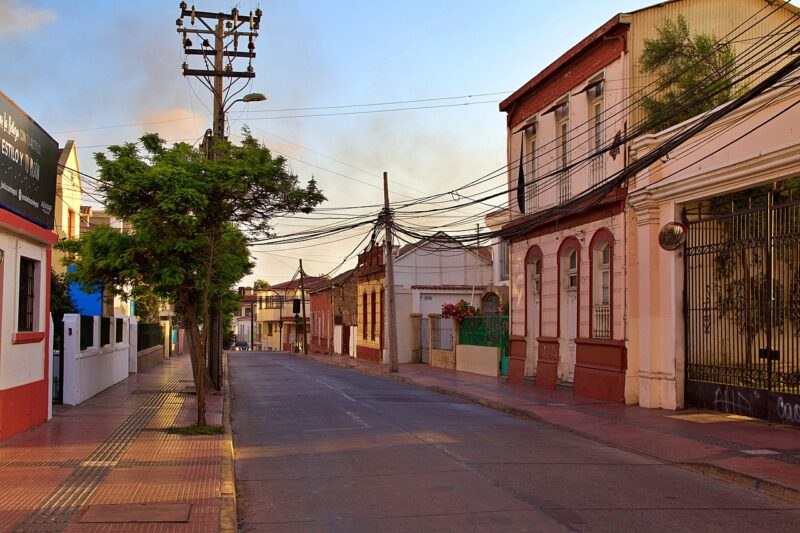
The Central Intelligence Agency (CIA) has been involved in a series of covert operations in Latin America since its inception. These operations, often shrouded in secrecy and controversy, have aimed to protect U.S. interests in the region and suppress leftist movements perceived as threats during the Cold War. This article will delve into the major covert operations in Latin America, their impact on regional politics, and the lasting implications for U.S. foreign policy.
1. Historical Context: The Rise of the CIA
The CIA was established in 1947 through the National Security Act, a response to World War II’s global challenges and the emerging Soviet threat. In the context of the Cold War, Latin America became a strategic chessboard where the U.S. aimed to counteract Soviet influence and prevent the spread of communism. The post-World War II period saw many Latin American countries grappling with social upheaval, political instability, and a growing affinity for leftist ideologies.
As fears of communism surged, particularly after the Cuban Revolution in 1959, the CIA intensified its covert efforts in the region, influencing numerous countries through military and political interventions.
2. Key Covert Operations in Latin America
Several notable CIA operations have shaped the political landscape of Latin America:
2.1. Operation PBSUCCESS (1954)
One of the earliest and most significant CIA operations was aimed at overthrowing the democratically elected Guatemalan President Jacobo Árbenz. Rousseau’s land reform policies threatened U.S. interests, particularly the United Fruit Company.
The CIA orchestrated a coup known as PBSUCCESS, involving disinformation campaigns, psychological warfare, and armed support to anti-Arbenz factions. The result was a military coup that led to years of civil wars and dictatorship in Guatemala, marking a shift towards authoritarian rule in many parts of Latin America.
2.2. The Cuban Invasion (Bay of Pigs, 1961)
The failed Bay of Pigs invasion was another significant CIA-led operation where Cuban exiles, trained and funded by the CIA, attempted to overthrow Fidel Castro’s regime. The invasion was poorly executed and resulted in a resounding defeat. This debacle significantly tarnished the reputation of the U.S. government and fueled anti-American sentiment in Latin America.
2.3. Operation Condor (1970s)
Operation Condor was coordinated amongst several South American dictatorships with U.S. support and aimed at eliminating leftist opponents. The program involved assassinations, kidnappings, and torture of suspected dissidents across borders. Countries like Chile, Argentina, Uruguay, and Brazil participated, resulting in thousands of casualties and human rights violations. The U.S.’s tacit approval of such operations raised ethical concerns about its role in supporting brutal regimes.
2.4. The Iran-Contra Affair (1980s)
The Iran-Contra Affair was a political scandal that came to light in the late 1980s, revealing a covert operation where the CIA facilitated arms sales to Iran. The proceeds from these sales were then funneled to support the Contras in Nicaragua, a rebel group fighting against the Sandinista government. The affair raised significant legal and ethical questions about executive overreach and the CIA’s influence on U.S. foreign policy.
3. Impact on Latin America
The CIA’s interventions in Latin America had profound and often disastrous consequences:
- Political Instability: The coups and support for authoritarian regimes led to prolonged periods of violence and instability. Countries such as Guatemala and Chile experienced decades of political repression and human rights abuses that continue to affect their societies today.
- Anti-American Sentiment: The legacy of CIA operations has fostered deep-seated resentment towards the U.S., epitomized in political movements across the continent that view American intervention as imperialistic.
- Human Rights Violations: Millions were affected by the violent repression and systematic human rights abuses perpetrated as part of these operations. Organizations continue to seek justice for victims of CIA-backed regimes.
4. The Transformation of U.S.-Latin America Relations
In the decades following the Cold War, U.S. foreign policy towards Latin America has shifted, focusing more on diplomacy and partnership rather than covert operations. The negative legacy of past interventions has made it essential for the U.S. to approach relationships in a more collaborative manner.
Policies today emphasize trade, development aid, and addressing issues like immigration and drug trafficking, though debates over military involvement continue. The complexities of U.S.-Latin American relations reflect a history heavily influenced by covert operations and their long-lasting effects.
5. Conclusion: A Controversial Legacy
The CIA’s covert operations in Latin America reveal the complexities and contradictions of U.S. foreign policy. While intended to protect national security interests, these actions often resulted in severe consequences for the countries involved. As history moves forward, reflection on these operations is crucial for understanding the importance of ethical considerations in foreign policy and the need for diplomacy over covert intervention.
Through a careful examination of past actions, both the CIA and policymakers can work towards a future that values collaboration, respect for sovereignty, and the promotion of human rights in Latin America. Only by acknowledging and learning from history can true progress be made in U.S.-Latin American relations.







